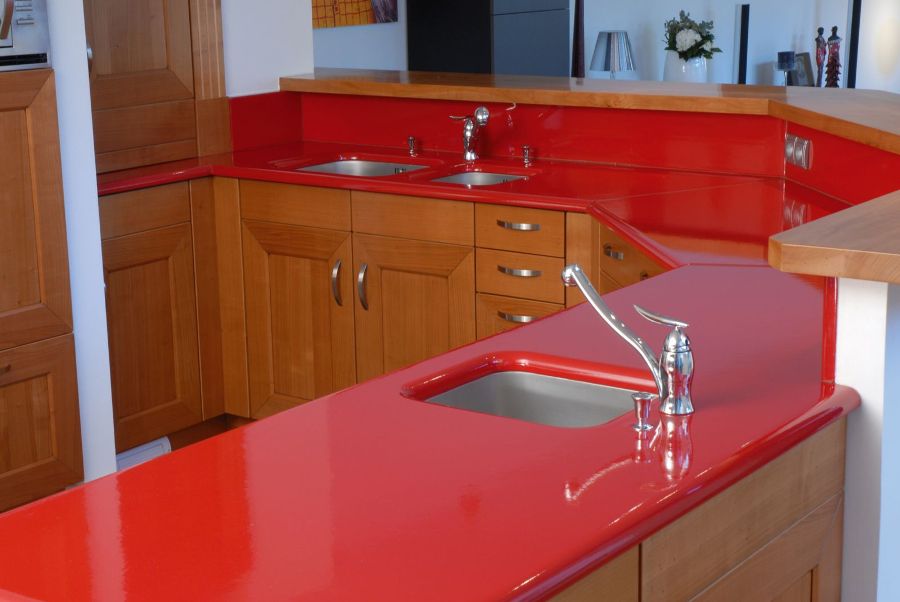There are multiple non-stone materials that can be used for your kitchen material. As an example, you don’t have to use concrete only for driveways and sidewalks. Concrete doesn’t have to look rough and ugly. Concrete countertop can be pigmented and then polished to produce a shiny surface. Concrete need to be sealed regularly and it can be rather porous. Just like granite, well sealed concrete should resist stain quite well. Another big advantage of concrete is that it can be made into any custom shape and size. Concrete also resists heat exposure and can be made with different textures. It is also important to wax the sealer every two months to prevent water damage and stain.
Stainless steel is also an alternative for countertop material. There’s a reason why kitchens in even the most expensive restaurant use stainless steel, instead of granite. They prioritize on water resistance, low maintenance, durability and cleanliness. No guest will enter the kitchen, so there’s no need to make the countertop to look pretty. Steel doesn’t absorb moisture and it takes minimal effort to clean. Prolonged exposure to heat and even direct fire won’t damage it. If you don’t mind having an industrial look in your kitchen, stainless steel should be a good solution for your kitchen. However, denting stainless steel sheet can be quite easy to do and you may also leave marks with sharp knives.
For a more rustic appearance in your kitchen, you may choose wood countertop. It is usually made from oak or maple strips, which are glued together. Bamboo is also a durable material that can be used for your countertop. Wood has many varieties in terms of textures and shades. You may sand and reseal woods repeatedly as your weekend project, if they start show stains, scratches and deep cuts. Installing wooden countertop is easy and it is also relatively more affordable than other type of material, especially natural stones. However, wood burns easily, so you should place it far from the source of fire. Wood may also turn black and warp when placed near the sinks. Regular sealing will be needed for wooden countertops that are exposed to plenty of moisture.
Laminate counters or formica is another material that you should use. It’s essentially thin layer of plastic that’s glued to wood or particleboard. Plastic laminate countertops should be lightweight and very inexpensive. This is a good solution if you want to significantly reduce the costs of building your kitchen. Other advantages are that plastic laminate is available in different patterns and colors. They are also resistant to stain, as long as the plastic cover doesn’t peel. It’s obvious that laminate counters won’t last forever, because they can be scratched quite easily. If you use brush or abrasive cleaners, the surface can become dull and eventually the plastic will be peeled out. Water damage will start to appear when there’s leak on the plastic layer. So, get ready to replace laminate counters a bit more frequently.







